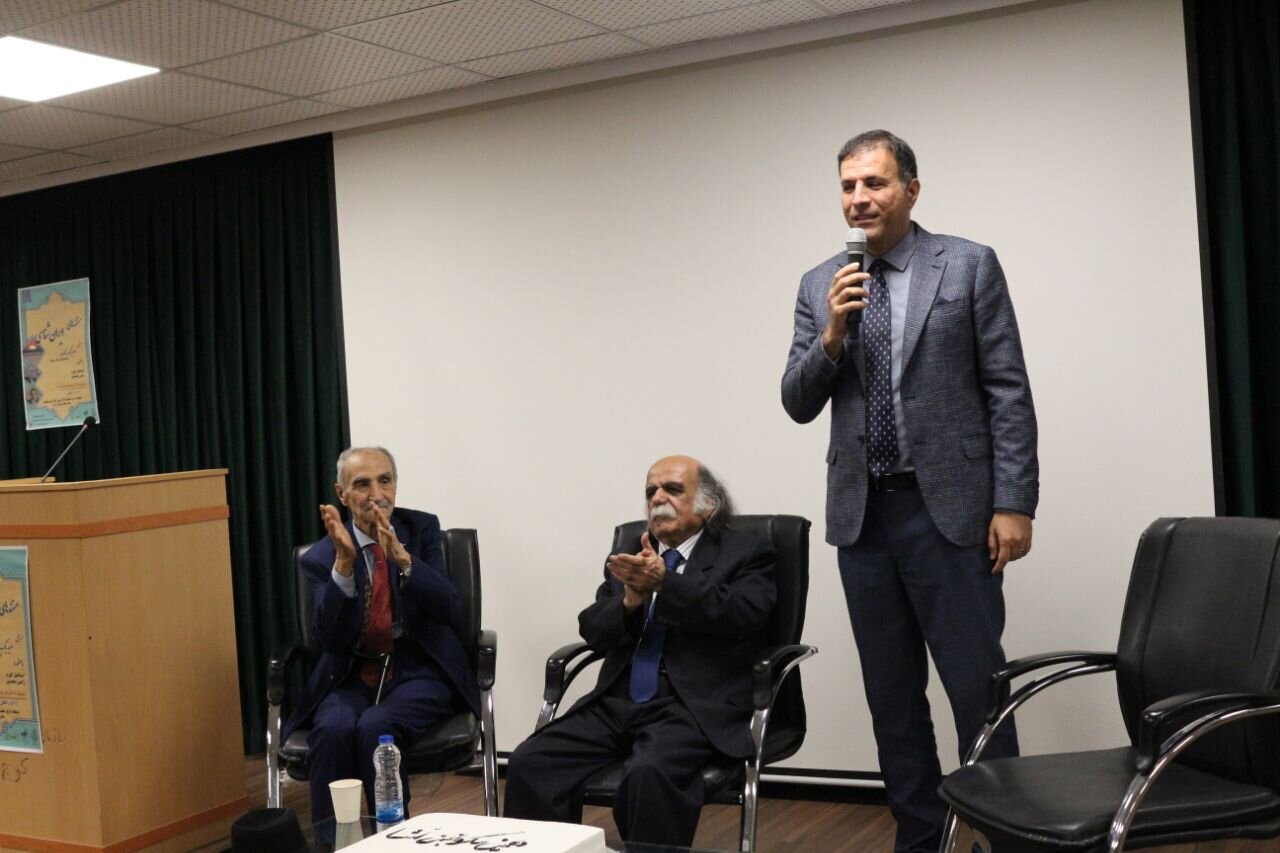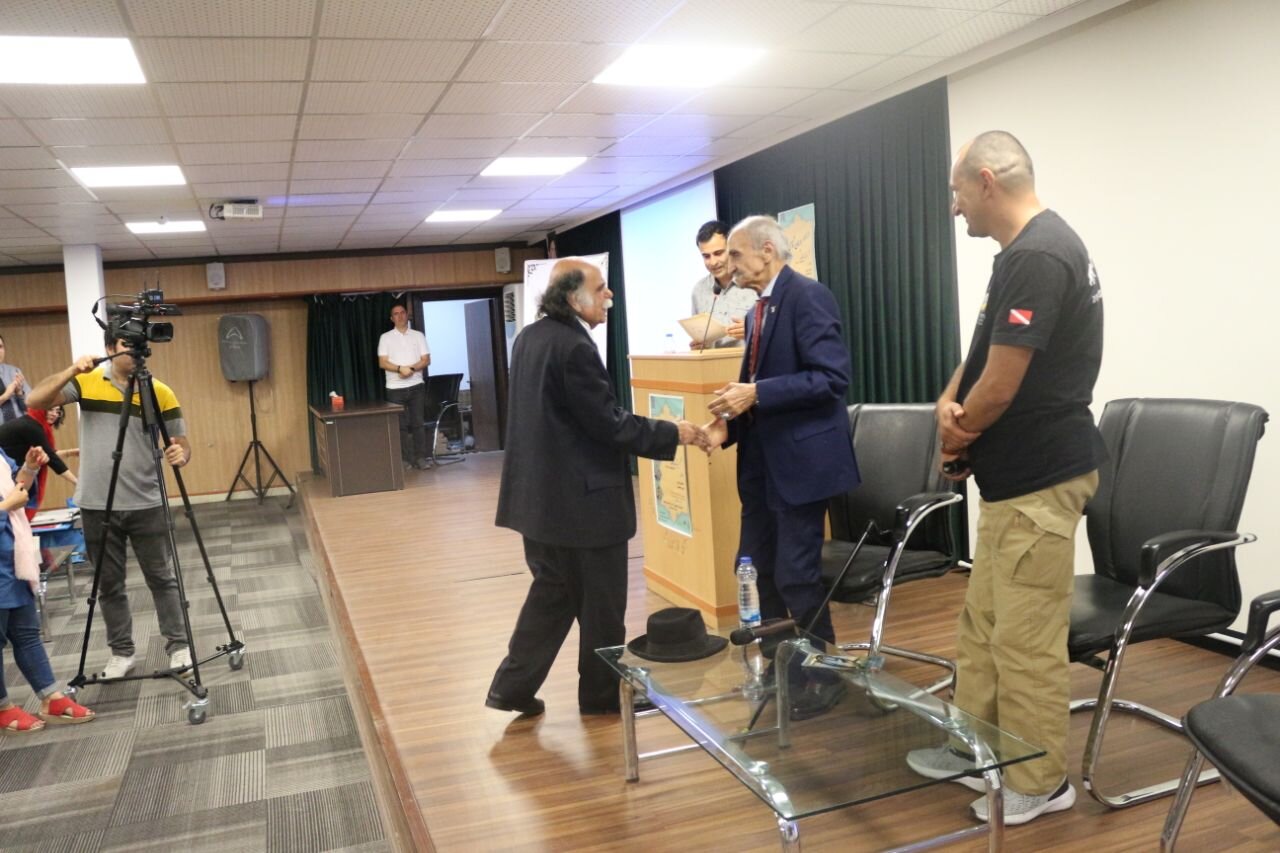According to the news agency Online news According to the public relations of the Iranian Cinema Documentary Association, after the screening of the documentary “Hope of a Pond” directed by Ali Tekrosta, Mirjalaluddin Kezazi stated: In a speech that I gave somewhere a while ago, I said several times in a part of the speech; We are all criminals; From the commander to the subordinate, from the big to the wise, from the beautiful to the ugly, from the wise to the ignorant, women, men, not only in Iran, but in the world of everyone who lives on this dear rotating sphere that we call the earth, we are criminals. because we do not know the pass of this snake; We are the most corrupt people and the one who does not respect his mother is not a person.
He added: “A few days ago, it was Ecology Day. I am not an orator and I do not consider myself an orator.” At least I am not a professional speaker; Sometimes a song boils in me, what I have the chance to present to you is a song of this kind. This song is called a song for the earth; I am proud to present this poem, which is a short masnavi, to Iran’s ecological superman, Ustad Kahram.
In the continuation of this meeting, Kazazi presented his poem to Ismail Kahram, an ecologist and environmental activist.
Ismail Kahram said in a part of this meeting: There are moments in the life of a 78-year-old person when he becomes happy and proud and proud of himself. Today was one of those moments and I have never felt so proud of myself. When Master Kezazi showed love and sang this poem about my servant’s insignificant deeds and recited it here, now I am flying on the clouds.
Kehram noted: I enjoyed watching this movie, this lagoon was called something else and then its title was changed to Salehieh. We are the masters of changing names, we turn the Thirteenth of Badr into nature’s day; When I was a child, the name of Thirteenth Badr made me happy in nature, but now they have changed its name to Nature Day. Qarpuzabad lagoon, which is translated as watermelon in Turkish, what was wrong with it?

In response to a question about the importance of wetlands in the environment, he said: “You don’t know that wetlands can prevent earthquakes. Earthquake waves start at a depth of 10 kilometers and rise, and when they reach the wetlands, they calm down and no longer have that intensity. make the soil layers irregular and collapse.
Vez added: I was surprised when I saw the birds of Qarpuzabad lagoon. It is very strange that there are about a quarter of Iran’s birds in this wetland. From birds of prey to migratory birds that travel a long distance to get here. What is in this wetland that the flamingos are trying to get here. I saw a osprey here, definitely feeding these birds that are here. The variety of species in this wetland is really strange and there is a place to take care of this wetland.

Referring to the ecological importance of wetlands, he said: The freshness and humidity that wetlands give to our space and breathing air is unique. A wetland is a place for the expansion and dispersion of birds, and many of these birds are suitable for hunting, but I don’t think that the Qarpouzabad wetland has these talents. Wetlands supply the underground water table and form water in the layers of the earth that the farmer digs and uses that water to plant his crops or water his livestock. The properties of wetlands are truly countless and wherever there is a wetland, we are faced with a variety of plants and animals, especially insects. We have a water crisis and we must take care of our spoils and preserve them for future generations. If a wetland dries up, it will be a big disaster, an example of which happened in Minab Bandar Abbas. With the disappearance of wetlands, the formation of sinkholes occurs, which we see in Isfahan. The most complex field in the environment is the issue of water and water bodies, and this issue requires a specialized view.
Ramin Mohammadi said about the history of Salehiye Lagoon: We had a cultural program in the Shahnameh Association and I was very interested in animals. I was given a mission to deal with the environment. Then I went to birdwatching and got addicted to it, and we received news from the Iranian birdwatching club that a wetland has been created in Alborz province. We were shocked and we lived in Karaj for a long time and it was strange for us that a wetland was created here. We visited the lagoon and there I met Omid Yeke Fallah and it was so attractive to me that I wanted to introduce it to everyone as soon as possible.
He added: I talked to Omid and asked him to show us more of the place, and then the photographers and the birdwatching club joined us. Everyone was surprised to see the lagoon and we understood the problems of the lagoon more and more every day.
To deal with this wetland, when we were invited to a seminar, we wrote a proposal with the scientific help of Mr. Hashemi, and after that, processes were determined for us, which bothered us a lot, and at the same time, the spread of Corona began.
He added: SGP is a part of humanitarian assistance with the environment, which consists of good people all over the world who work to preserve and restore local ecosystems. We suffered a lot of hardships, there was a time when they wanted to destroy the wetland, the highway passed through the middle of the wetland, and even though we witnessed the phenomenon of flamingos in the middle of Alborz province, no one paid attention to this issue, but in the end, the result of the efforts was that the wetland is now everyone knows, the environmental organization accepted the existence of the lagoon, the governor’s office, the governor’s office and the president’s office signed our letters and the president ordered that this be dealt with. In the end, we neither won nor lost, we became white in front of our conscience, this is our homeland and one should keep his homeland clean and I must say that we are not far behind and unfortunately these problems exist everywhere and it seems It turns out that we humans are deliberately taking steps towards the destruction of the environment. We have a lot of work to do, and in my opinion, what was done for this wetland was very good, and I must say that the presence of 220 birds here is our latest statistic, which is a very good number, and we were really surprised because there are a little more than 500 birds in Iran. we have
Kahram further said about the role of birdwatching in the development of environmental culture: I have studied in England for many years, the spontaneous movements to preserve the environment and wetlands in England have reached a point where people can do many of the bird studies themselves. If we can do such methods to teach ornithology, we can get help from people very soon.
He added: 40 or 50 years ago in Iran, we didn’t have anyone who could do simple work in ornithology, and unfortunately, these works were the exclusive domain of those who had attended the course, but the same slow movement has now led to the fact that we have people in the cities who The provinces write and say that we have the ability to conduct a census. These are the first steps, but we hope that we will use Iranian volunteer groups very soon.
Kahram pointed out: Our non-governmental organizations have reached a stage where they are very advanced in terms of awareness and can be used in various projects, and these can be our crutches now, and over time, they can be more effective with more expertise.
In the continuation of this meeting, Mohammadi said about the spread of interest in birds and the environment: We must start from ourselves and our homes. At the first stage, I got my family members interested and then I went to other people around me. Definitely, the best way is to connect these interests, form a group, and then these local groups operate in the form of NGOs, they can receive a series of aid and sometimes follow up on environmental issues.
22057
